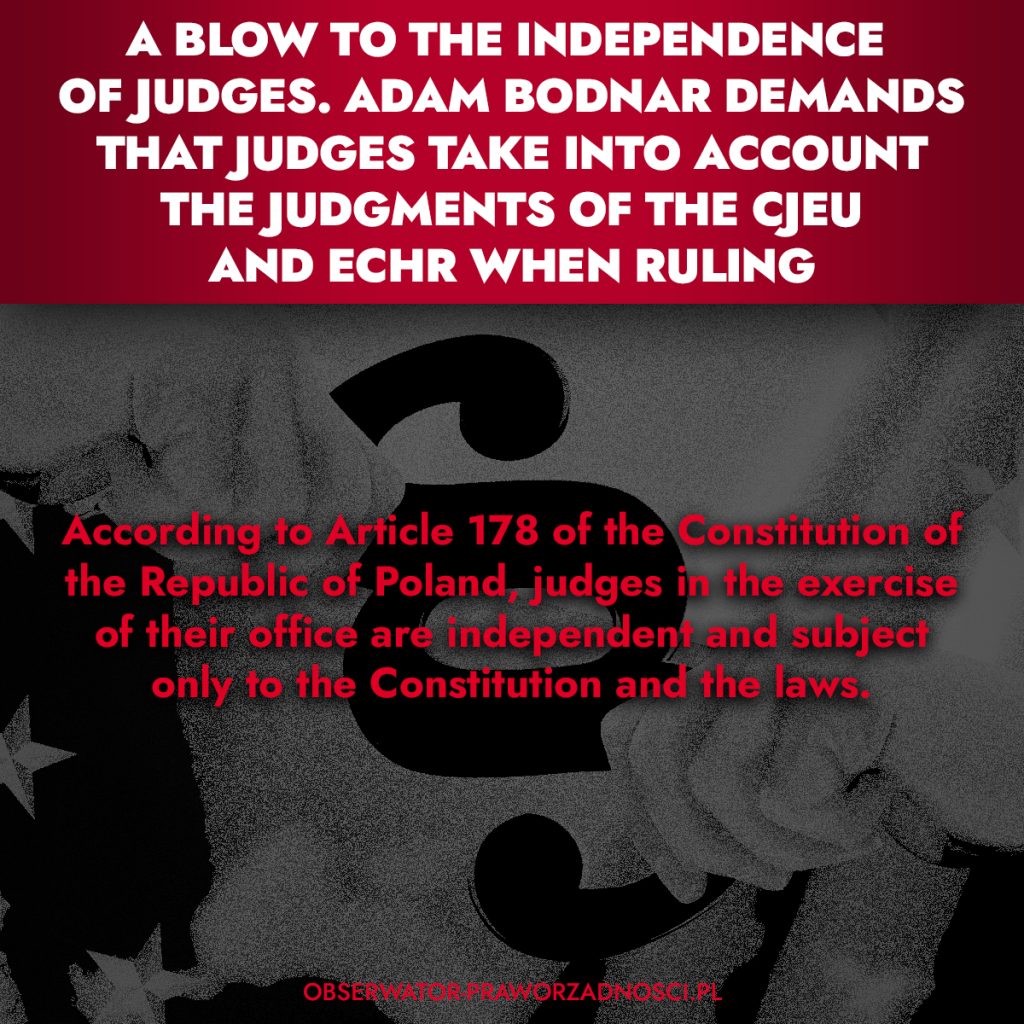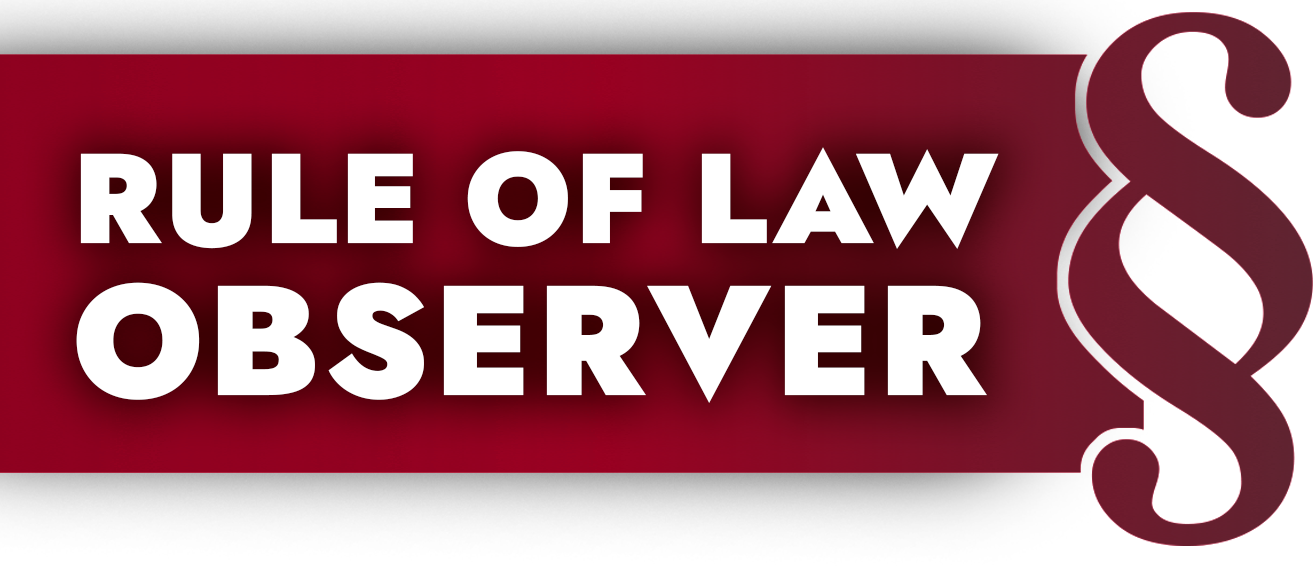In 2017, the then ruling United Right government introduced into Polish courts the institution of “coordinators for international cooperation and human rights” in criminal and civil cases. The justification for the amendment stressed that this was done “in order to improve the practice of exchanging information and experience regarding international cooperation and human rights”.
Meanwhile, Poland’s new Minister of Justice and Attorney General Adam Bodnar decided to use the institution of coordinators for something completely different: for instructing judges on how they should rule, claiming that the National Judiciary Council is operating illegally, as it was supposed to be elected based on the provisions introduced by the law of December 8, 2017, which is supposedly confirmed by the rulings of the Court of Justice of the European Union and the European Court of Human Rights.
Already on his very first day in office, on December 13, 2023, the Minister sent a letter to the coordinators in which he interpreted that the coordinators have the obligation to “pay special attention to the case law [of the CJEU and ECHR] regarding the status of persons appointed to judicial positions with the participation of the National Judiciary Council [as of 2017]”, from Articles 16b and 16d of the Law of July 27, 2001 on the System of Common Courts, according to which coordinators are obliged to “inform judges about relevant current case law of international bodies”. He also announced that “ in the near future, the Ministry of Justice will be holding seminars and training sessions on the importance of CJEU and ECHR case law concerning the independence of the judiciary”.
The 2017 amendment changed the method of appointment of the 15 judges-members of the NJC. Until then, they were selected by the judicial assemblies, and they are elected by the Sejm ever since. The Article 187 of the Constitution, which regulates this area, does not specify who elects the judges-members of the NCJ, but states that the method of selecting the members is determined by parliamentary bill. This change was opposed from the beginning by many judges maintaining in contradiction to the letter of the Polish Constitution, that these 15 judge-members of the NJC must be elected by judges. Thus, the new Minister of Justice and Attorney General Adam Bodnar completely ignored the position of the Polish Constitutional Tribunal, which in its judgment of March 25, 2019, ref. K 12/18, confirmed the conformance of the provisions of the Law of December 8, 2017 with the Constitution as well as with the well-established line of jurisprudence maintaining that the act of appointment to the Office of a Judge by the President of the Republic of Poland is final and is not subject to any kind of review, including by courts and tribunals (see: the verdict of the Constitutional Tribunal of March 4, 2020, P 22/19, the judgment of the Constitutional Tribunal of December 11, 2023, Kp 1/23).
In addition, on December 15, 2023, Adam Bodnar published a draft decree adding a new paragraph 118a to the Rules of Procedure of Common Courts, according to which
“during the preparation of verdicts and justifications the European Union law shall be taken into cosideration, in particular Article 19 of the Treaty on European Union” [regarding the CJEU], as well as “acts of the international law binding on the Republic of Poland”, in particular Article 6 of the European Convention on Human Rights, “taking into account the jurisprudence of the CJEU and the ECHR when interpreting them”.
„Bodnar’s Decree” – as the draft regulation has already been dubbed – constitutes a flagrant violation of Article 178(1) of the Polish Constitution, according to which “in the exercise of their office, Judges shall be independent and subject only to the Constitution and statutes”. Therefore, it is forbidden to impose obligations on judges regarding adjudication and justification of rulings by means of decrees. Bodnar’s decree also contradicts the Constitutional Tribunal’s judgment of October 7, 2021 (ref. K 3/21), which stated that Article 19 of the Treaty on European Union, cited by Bodnar is incompatible with the Polish Constitution, to the extent that it would authorize a court to review the independence of judges appointed by the President of the Republic of Poland.




